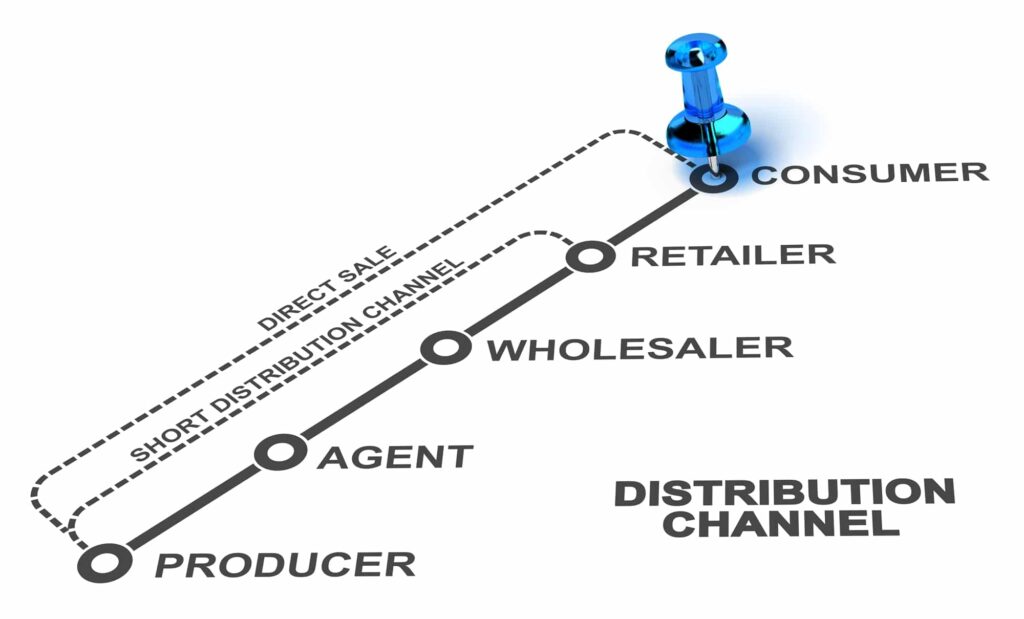Turkey’s dynamic market has become a hub of opportunities for businesses seeking to expand their reach. With its strategic location bridging Europe and Asia, it’s no wonder that companies are eager to tap into its growing economy. However, navigating the complexities of Turkey’s distribution networks and sales channels requires a well-thought-out approach.
We need to understand the unique landscape, from local preferences to regulatory frameworks, to establish a strong foothold. Whether it’s identifying the right partners or optimizing supply chains, a tailored strategy can make all the difference in achieving success in this competitive market.
Overview Of Distribution Network In Turkey
Turkey’s distribution network integrates domestic logistics infrastructure with global trade routes. Its strategic geographical location connects Europe, Asia, and the Middle East, serving as a vital transit hub for goods and services. This network enables efficient distribution both within the country and to neighboring markets.
Key players, including wholesalers, distributors, and retailers, dominate Turkey’s domestic distribution landscape. Wholesalers manage bulk imports and ensure product availability for retail, while distributors focus on streamlined supply chain management. Retailers directly engage with consumers through physical stores and e-commerce platforms.
Major sectors like textiles, automotive, and electronics rely heavily on specialized distribution channels. For example, the textile industry employs large wholesalers concentrated in Istanbul, while the automotive sector utilizes exclusive dealership networks. Expanding industries like consumer electronics increasingly use e-commerce platforms to access broader audiences.
Regulatory compliance shapes how distribution networks operate in Turkey. Authorities enforce standards related to product safety, labeling, and taxation. Businesses need documented processes to meet such requirements and avoid obstacles during distribution.
Key Sales Channels In Turkey
Turkey offers diverse sales channels, reflecting its blend of traditional and modern market dynamics. These channels are critical for businesses aiming to reach varying consumer demographics effectively.
Traditional Retail Channels
Traditional retail remains significant, especially in rural and semi-urban areas. Small grocery stores (bakkals), open-air markets (pazars), and specialty shops dominate this segment. These channels provide personalized customer experiences and serve localized demand. They are often the preferred choice for household staples and fresh produce.
Modern Retail Chains
Modern retail chains have expanded rapidly, particularly in urban centers. Supermarkets, hypermarkets, and discount chains, including names like Migros, CarrefourSA, and BIM, cater to middle- and upper-income consumers. These chains emphasize product variety, competitive pricing, and convenience. They also integrate private-label products and loyalty programs to attract a broader customer base.
E-Commerce Platforms
E-commerce in Turkey has grown substantially, driven by internet penetration and digital payment adoption. Platforms such as Trendyol, Hepsiburada, and n11 dominate online retail, offering products across various categories, from fashion to electronics. Cross-border e-commerce is also emerging, allowing businesses to access international markets. Robust logistics and customer-focused return policies are vital success factors in this channel.
Challenges In Distribution And Sales Channels
Navigating Turkey’s distribution networks and sales channels presents various obstacles for businesses. Identifying and addressing these challenges is essential to ensure smooth operations and market penetration.
Infrastructure Issues
Turkey’s logistics infrastructure integrates local and global networks but faces inefficiencies. Road transport dominates, yet limitations like traffic congestion and regional disparities affect delivery timelines. Port capacity and customs delays can hinder international shipments, increasing costs for businesses relying on imports or exports. Addressing these issues requires strategic planning to mitigate disruptions in supply chains.
Regulatory Hurdles
Compliance with regulations in Turkey can be complex due to evolving policies. Businesses must align with strict standards concerning product safety, labeling, and VAT applications. Foreign entities encounter additional complexities in trade certification and customs clearance for imported goods. Delays occur when documentation or adherence to standards is inadequate, risking penalties or restricted market access.
Market Competition
Intense competition characterizes Turkey’s dynamic markets. Local brands often dominate traditional retail outlets, creating challenges for new entrants. Modern retail and e-commerce sectors are crowded with global players and regional platforms. Price sensitivity among consumers makes differentiation vital, while promotional campaigns and customer engagement strategies compete to secure visibility and loyalty.
Opportunities For Growth And Expansion
Expanding in Turkey’s dynamic market offers ample growth opportunities, driven by digital advancements, strategic partnerships, and evolving consumer behavior. Businesses can achieve sustainable success by leveraging these key areas.
Digital Transformation
Investments in technology improve operational efficiency and enhance customer engagement. E-commerce platforms, strengthened by Turkey’s growing internet penetration (approximately 85% as of 2023), facilitate broader market access. Businesses integrating AI and data analytics into their logistics and sales strategies optimize inventory management and personalization. For example, using predictive analytics to anticipate demand improves supply chain forecasting. Additionally, mobile payment systems and digital wallets drive transaction growth, ensuring seamless consumer experiences.
Strategic Partnerships
Collaborations with local distributors, suppliers, and logistic firms enhance market reach and operational resilience. Establishing joint ventures with Turkish businesses addresses regulatory hurdles and increases brand trust. For instance, partnering with established domestic networks strengthens connection points in regional markets. Foreign firms can also explore agreements with modern retail chains, such as Migros or CarrefourSA, to penetrate urban customer bases.
Emerging Consumer Trends
Shifting consumer preferences align with global patterns and local cultural nuances. Increasing demand for sustainable and organic products reflects heightened environmental awareness. Retailers offering eco-friendly options in food and clothing categories meet this demand while securing a competitive advantage. Additionally, Turkey’s youthful demographic, with 40% of the population under 25, prioritizes digital consumption through apps and social media, presenting opportunities for tailored, mobile-first marketing campaigns.
Best Practices For Successful Market Entry
Understand The Local Consumer Behavior
Researching Turkey’s diverse consumer base helps identify preferences across different regions. Urban consumers prioritize convenience, while rural consumers value affordability and personal interaction. For example, focusing on digital engagement and e-commerce can appeal to the younger urban demographic, while traditional channels resonate more with semi-urban and rural buyers.
Comply With Regulatory Requirements
Ensuring adherence to Turkey’s legal frameworks reduces operational risks. Key requirements include accurate product labeling, tax compliance, and meeting product quality standards. Businesses importing goods also need to navigate customs regulations, including certifications and clearance processes, to avoid delays.
Build Strategic Partnerships
Partnering with local distributors, wholesalers, and retailers enhances market entry efficiency. We can leverage their market knowledge, established networks, and logistical capabilities for better outreach and sales. For instance, collaboration with a regional distributor can simplify supply chain challenges in specific provinces.
Leverage Digital Advancements
Optimizing digital tools supports faster market integration in Turkey. Investing in e-commerce platforms and logistics technologies promotes seamless delivery. Platforms like Trendyol and Hepsiburada provide effective marketplaces for reaching digitally-savvy customers, supported by targeted online advertising campaigns.
Tailor Marketing Strategies
Customizing marketing efforts ensures relevance to local audiences. Campaigns emphasizing cultural familiarity foster brand resonance among consumers. Brands offering sustainable or eco-friendly products, for example, can align messaging with Turkey’s growing interest in environmentally conscious consumption trends.
Address Logistical Constraints
Developing robust supply chain solutions minimizes disruptions caused by infrastructure limitations. Establishing regional warehouses and optimizing delivery routes reduce transit delays and costs. Collaborating with experienced third-party logistics providers enhances operational efficiency in high-demand areas.
Conclusion
Turkey’s dynamic market offers immense potential for businesses willing to adapt and innovate. By aligning with the country’s unique distribution networks and diverse sales channels, companies can unlock new growth opportunities while navigating challenges effectively.
A strategic focus on local partnerships, regulatory compliance, and digital transformation is key to building a strong presence. As consumer behavior continues to evolve, businesses that remain agile and responsive to market demands are well-positioned to thrive in this competitive landscape.
With the right approach, Turkey’s strategic location and expanding market can serve as a gateway to long-term success and regional influence.
Frequently Asked Questions
Why is Turkey considered a promising market for business expansion?
Turkey’s strategic location between Europe and Asia, coupled with its integration into global trade routes, makes it a vital hub for businesses. Its growing economy, young population, and rising internet adoption also provide excellent opportunities for businesses to tap into diverse industries like textiles, automotive, and e-commerce.
What are the key distribution network components in Turkey?
Turkey’s distribution network includes domestic logistics infrastructure and global trade routes. Key players such as wholesalers, distributors, and retailers help ensure product availability. Specialized channels cater to industries like textiles, automotive, and electronics, with regulatory compliance being a crucial factor for smooth operations.
What are the main sales channels in Turkey?
Turkey blends traditional retail, modern retail, and e-commerce. Traditional retail is more prevalent in rural areas through small shops and open-air markets. Urban areas focus on modern retail chains, while e-commerce, led by platforms like Trendyol and Hepsiburada, is growing rapidly nationwide.
How can businesses navigate Turkey’s regulatory requirements?
Businesses must comply with Turkish regulations on product safety, labeling, and taxation. Understanding import/export rules, certifications, and customs processes is vital, especially for foreign entities. Partnering with experienced local distributors can help streamline compliance.
What are the challenges of entering Turkish markets?
Key challenges include infrastructure limitations, like traffic congestion and port capacities, evolving regulatory policies, and intense market competition. Navigating these hurdles requires a focus on differentiation, efficient logistics, and tailored marketing strategies.
How has e-commerce grown in Turkey?
E-commerce in Turkey has expanded significantly due to rising internet access and digital payments adoption. Platforms like Trendyol and Hepsiburada lead the market, while cross-border e-commerce is emerging as an opportunity for international market reach.
What strategies are essential for successful market entry in Turkey?
Businesses should focus on understanding local consumer behavior, building partnerships with local distributors, and leveraging e-commerce platforms. Custom-tailored marketing strategies and robust supply chain management help address logistical and regulatory challenges effectively.
What opportunities does Turkey offer for sustainable products?
Turkey’s rising demand for sustainable products aligns with global trends. Environmentally-conscious consumers, especially younger demographics, are driving a growing preference for ethical and eco-friendly products, providing opportunities for businesses to cater to this niche.
Why is local partnership important for business growth in Turkey?
Collaborating with local distributors and suppliers enhances market reach, ensures regulatory compliance, and builds trust with Turkish consumers. Local expertise can help businesses navigate cultural differences and establish a strong competitive edge.
How can businesses address market competition in Turkey?
Differentiation is key to overcoming competition. Businesses should focus on tailored marketing, offering unique value propositions, and investing in digital technologies like AI-driven logistics and personalized e-commerce experiences to strengthen customer loyalty.



 WeChat
WeChat